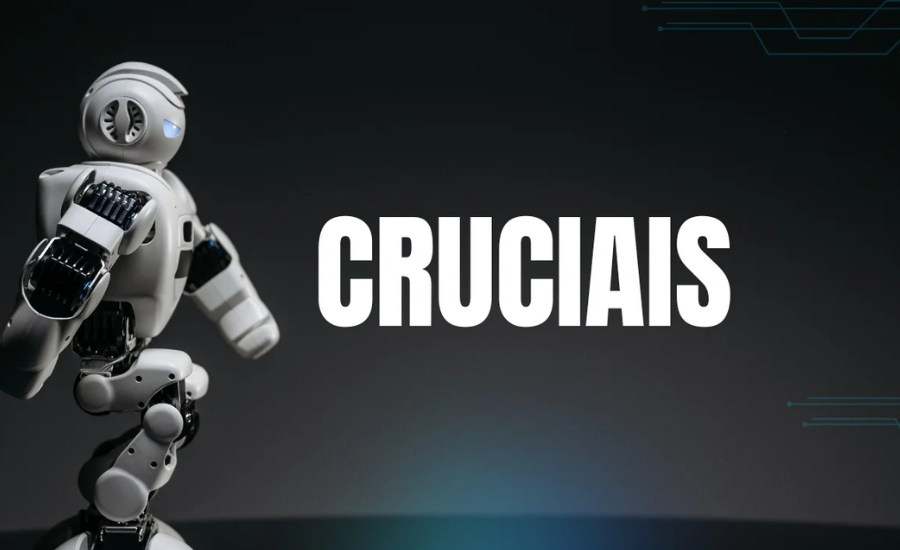The term “cruciais,” translated from English as “crucial,” signifies something of utmost importance or necessity. In our everyday lives, we encounter numerous situations, decisions, and elements that can be deemed critical. These essential factors significantly influence our decisions, lifestyles, and the world around us. This essay delves into the various dimensions of what “cruciais” entails, examining its importance across different contexts and how it shapes our existence.
Key Characteristics of “Cruciais”

- Pivotal: When something is pivotal, it often serves as a decisive turning point or a key factor that determines the direction or outcome of a situation.
- Essential: This denotes elements that are indispensable. Without these, a process, project, or situation cannot operate or achieve success.
- Influential: These factors wield considerable influence, significantly shaping the outcomes or results of various scenarios.
The Importance of Crucial Elements in Various Fields
Education
Education plays a vital role in human development, with numerous key elements enhancing its effectiveness.
The Meaning and Origins of Cruciais
Have you ever considered the true meaning of the word “cruciais”? Originating from Latin, this term carries layers of profound significance. Derived from “crux,” which means cross or pivotal point, “crucial” encapsulates a sense of vital importance and necessity.
In different contexts, “crucial” transcends its role as an adjective and becomes a cornerstone for decision-making and prioritization. Whether in personal relationships or professional pursuits, understanding what is truly crucial can lead to significant insights and transformative changes.
The essence of critical thinking lies at the heart of grasping the concept of “cruciais.” This involves a thorough analysis of situations, identifying key elements that can determine the success or failure of an outcome. Adopting this perspective can lead to personal growth and continuous improvement.
By delving into what is crucial in our lives, we can better appreciate its power to shape our future. Join us as we explore the various applications and impacts of this fundamental concept!
Understanding Cruciais in Different Contexts
The term “cruciais” can be interpreted in various contexts, highlighting its importance in numerous aspects of life. In academia, it signifies the fundamental principles that underpin learning and knowledge acquisition. Critical thinking is vital here, as it encourages individuals to effectively question and analyze information.
In the business world, grasping the concept of “cruciais” is crucial for making strategic decisions that foster growth and success. It involves carefully evaluating options and anticipating potential outcomes with accuracy. This approach nurtures innovation and adaptability in an ever-changing market environment.
On a personal level, understanding “cruciais” can lead to significant self-awareness and growth. Reflecting on one’s beliefs and values helps individuals develop resilience and emotional intelligence. This introspection lays the groundwork for meaningful relationships and personal satisfaction.
By comprehending “cruciais” in different contexts, individuals are better equipped to face complex challenges with clarity and determination.
Health
Health is fundamental to human well-being, and numerous essential factors influence the quality of healthcare and individual health.
Crucial Factors in Health

- Access to Healthcare: Availability and accessibility of healthcare services are cruPrevention and Early Detection: Implementing preventive measures and early diagnosis of diseases are vital for saving lives.
- Lifestyle Choices: Health is greatly influenced by diet, exercise, and habits such as smoking or drinking.
- Medical Research: Continuous research and development in the field of medicine are crucial for the progression of healthcare.
Technology
Technology has revolutionized our lives, with numerous key factors propelling its advancements and applications.
Crucial Factors in Technology
- Innovation: The evolution of technology hinges on ongoing creativity and advancement.
- Accessibility: Ensuring universal access to technology fosters comprehensive societal development.
- Security: Safeguarding data privacy and security remains paramount in today’s digital landscape.
How to pronounce cruciais in Portuguese
Ever wondered how to correctly pronounce the word “cruciais” in Portuguese? Let me demystify this linguistic challenge for you. In Portuguese, “cruciais” is pronounced as “kroo-si-ahys”, with the stress on the second syllable, lending it an elegant and impactful cadence.
To pronounce “cruciais” authentically, remember to roll your ‘r’ as native Portuguese speakers do. This adds an authentic flair to your pronunciation and demonstrates your commitment to mastering foreign languages. Practice aloud until you feel confident in your fluency.
Whether you’re learning Portuguese for travel, work, or personal enrichment, mastering the pronunciation of key words like “cruciais” can significantly enhance your language skills and cultural appreciation. Impress others with your newfound ability to correctly pronounce this term next time you encounter it in conversation or text!
Potential Applications of Cruciais
The concept of “Crucuais” encompasses a versatile potential across various industries and disciplines. In healthcare, integrating Crucuais can potentially transform how medical professionals approach patient care and treatment strategies. By applying critical thinking to diagnostics and decision-making, Crucuais may enhance accuracy in assessments and improve patient outcomes.
Additionally, in terms of environmental impact, understanding Crucuais can guide organizations in developing sustainable practices that prioritize conservation and reduce ecological footprints. Industries can benefit from adopting Crucuais by fostering innovation, enhancing problem-solving capabilities, and implementing strategic planning. Encouraging employees to critically analyze challenges and opportunities enables businesses to stay competitive in a dynamic market environment.
Personal development is profoundly influenced by embracing Crucuais principles. Individuals who cultivate critical thinking skills are better prepared to navigate life’s complexities with confidence and clarity. As we explore the diverse applications of Crucuais across sectors, its potential to shape a promising future becomes increasingly evident.
Scientific Research on Cruciais
Key Studies and Findings
Recent scientific inquiries into Crucuais are expanding, revealing a wealth of studies underscoring their advantages. Evidence indicates that consistent engagement can contribute to better physical health, heightened mental resilience, and potentially longer lifespans.
Implications of Research

These discoveries carry substantial implications, impacting not just individuals but also healthcare providers and policymakers alike. Incorporating Crucuais into health and wellness initiatives could foster more comprehensive healthcare strategies.
Work-Life Balance
Maintaining a healthy equilibrium between work and personal life is crucial for preventing burnout and enhancing overall well-being. This entails effectively prioritizing and managing time to ensure that professional responsibilities do not overshadow personal and familial commitments. Implementing strategies like establishing clear boundaries, delegating tasks, and taking regular breaks can promote a harmonious and balanced lifestyle.
- Establishing Boundaries: Creating clear distinctions between work and personal life is crucial for achieving a healthy work-life balance. This involves setting specific limits on work hours, refraining from work-related activities during personal time, and designating a dedicated workspace separate from living areas.
- Assigning Responsibilities: Distributing tasks and duties among team members can effectively reduce workload and mitigate burnout. This includes identifying tasks suitable for delegation, fostering open communication with colleagues, and providing necessary guidance and resources.
- Taking Breaks: Incorporating regular breaks into the workday is essential for alleviating stress, enhancing productivity, and promoting overall well-being. This encompasses short breaks for relaxation and rejuvenation, as well as longer periods such as vacations for complete disconnection from work.
FAQ
Q: Why is setting boundaries important for achieving a healthy work-life balance? Setting boundaries helps individuals maintain a separation between their professional and personal lives, reducing stress and preventing burnout. It allows for dedicated time to recharge and focus on personal well-being.
Q: How can delegating tasks contribute to reducing workload and preventing burnout? Delegating tasks distributes responsibilities among team members, allowing individuals to focus on core priorities. This practice promotes efficiency, collaboration, and a healthier workload distribution.
Q: What are the benefits of taking breaks throughout the workday? Taking breaks, whether short pauses or longer vacations, enhances productivity by preventing fatigue and promoting mental clarity. Breaks allow individuals to recharge, leading to improved overall well-being and sustained performance.
Conclusion
Achieving a healthy work-life balance is essential for personal well-being and professional success. By implementing strategies such as setting boundaries, delegating tasks effectively, and taking regular breaks, individuals can manage their workload more efficiently and maintain a fulfilling personal life. These practices not only reduce stress and prevent burnout but also foster productivity and creativity. Embracing a balanced approach ensures that individuals can thrive both in their careers and personal lives, leading to a more sustainable and fulfilling lifestyle.




